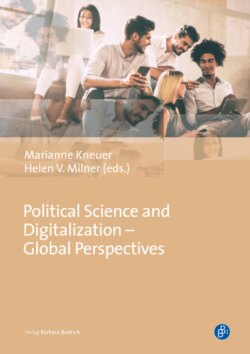Читать книгу Political Science and Digitalization - Global Perspectives - Группа авторов - Страница 32
На сайте Литреса книга снята с продажи.
2.4 Desiderata, positive perspectives, possible risks
ОглавлениеMexico has enormous challenges in political science education and education in general. Besides the lack of digitalization of processes and Internet access, other problems such as the demographic bonus6 need to be considered. Only 17 % of people aged 25 to 64 have completed higher education, the lowest proportion among the OECD countries, where the average is 37 %. Regarding postgraduate studies, only 1 % of Mexicans in that age range have a Master’s degree or equivalent while less than 1 % has a Ph. D.
In political science education, Mexico faces three problems. 1. recognize the need to increase virtual education on the field; 2. promote a national strategy at all levels and universities to increase the use of technology in political science education and 3. embrace a digital transformation of contents and process across the disciplines of social sciences.
1. Recognize the need to increase virtual education in the field. Some small steps have been made in such direction with the National Association of political science in Mexico, that focuses its efforts to disseminate knowledge of the area using virtual technologies. Very few universities such as the UNAM and UAEM started with virtual courses on some political topics such as open government7.
2. Promote a national strategy at all levels and universities to increase the use of digital technology in political science education. This is the most important task, but less attention has been provided during these years. Many political sciences schools and universities focus their attention on their programs, students’ numbers but no attention to digitalizing their contents or increasing their quality focused on national problems.
3. Embrace a digital transformation of contents and process across the disciplines of social sciences. Only the Colegio de México8, a prestigious public university for political science, history, and international relations has programs that share common ground on social sciences. However, this is elite education for a very few Mexicans; only 25 students are accepted every two years in the public administration programs. Other private universities, such as the Jesuit university, Universidad Iberoamericana and the Instituto Tecnológico de Estudios Superiores de Monterrey (ITESM) have programs that share some content with other disciplines such as communication and sociology subjects that enrich [48] their programs. But none of them have digital programs or virtual learning. The main challenge for Mexican political science teaching is to understand the importance of this task and their impact on future education. Without recognizing this problem, very few advances can be made in such a direction.
